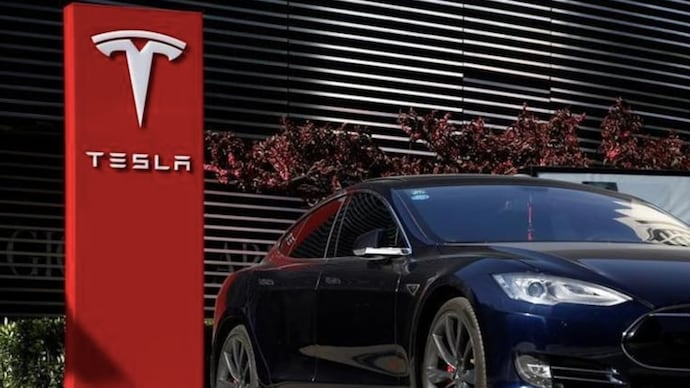The global demand for electric vehicles (EVs) has been rapidly increasing in recent years, driven by the need for sustainable transportation solutions and the growing awareness of the environmental impacts of traditional fossil-fuel-powered vehicles. At the heart of this revolution lies the pivotal role of lithium batteries, which power the widespread adoption of electric vehicles. This article explores the significance of lithium batteries in driving the green revolution in the automotive industry. For more information about lithium batteries and electric vehicles, visit goldenmate.
Understanding Lithium Batteries
- Definition and Composition of Lithium Batteries: Lithium batteries are rechargeable batteries that use lithium ions as the primary carrier of electric charge. They are composed of a cathode, an anode, and an electrolyte, allowing the movement of lithium ions during charge and discharge cycles.
- Advantages of Lithium Batteries over Other Battery Technologies: Lithium batteries offer several advantages over other battery technologies. They have higher energy density, longer cycle life, and lower self-discharge rates. Additionally, they exhibit faster charging times and are lightweight, making them ideal for electric vehicles.
- Key Components and Working Principle of Lithium Batteries: Lithium batteries consist of a lithium-based cathode, typically made of lithium cobalt oxide, lithium iron phosphate, or lithium manganese oxide. The anode is usually made of graphite or lithium titanate. The electrolyte allows the movement of lithium ions between the cathode and the anode during charging and discharging, while the separator prevents short circuits.
Role of Lithium Batteries in Electric Vehicles
- Powering EVs: Lithium Batteries as the Primary Energy Source Lithium batteries serve as the main energy source in electric vehicles. They store electrical energy that is used to power the vehicle’s electric motor, providing a clean and efficient alternative to internal combustion engines.
- Range and Performance: How Lithium Batteries Enable Longer Distances and Improved Acceleration The energy density of lithium batteries allows EVs to achieve longer driving ranges, reducing range anxiety among consumers. Moreover, the high power output of lithium batteries enables electric vehicles to deliver impressive acceleration and performance.
- Charging Infrastructure: Compatibility and Fast-Charging Capabilities of Lithium Batteries Lithium batteries are compatible with various charging infrastructure options, including home chargers, public charging stations, and fast-charging networks. They can be recharged at significantly faster rates compared to other battery technologies, making EV charging more convenient and accessible.
Environmental Benefits of Electric Vehicles
- Reduction in Greenhouse Gas Emissions: EVs as a Sustainable Transportation Solution Electric vehicles produce zero tailpipe emissions, resulting in a substantial reduction in greenhouse gas emissions compared to conventional vehicles. When charged with renewable energy sources, EVs offer a truly sustainable transportation solution.
- Air Quality Improvements: Decreasing Pollution and Mitigating Health Risks By eliminating the emissions of pollutants such as nitrogen oxides and particulate matter, electric vehicles contribute to improved air quality. This reduction in air pollution has direct health benefits, reducing respiratory and cardiovascular diseases.
- Renewable Energy Integration: EVs and Lithium Batteries as Storage Solutions for Intermittent Renewable Sources Electric vehicles equipped with lithium batteries can serve as a crucial component of the smart grid by acting as mobile energy storage systems. They can store excess energy generated from renewable sources and supply it back to the grid during peak demand periods, facilitating the integration of intermittent renewable energy sources.
Challenges and Future Developments
- Limited Lithium Resources: Addressing Concerns about Supply and Recycling As the demand for lithium batteries continues to rise, concerns about the availability of lithium resources and the environmental impact of battery disposal and recycling arise. Ongoing efforts are being made to develop sustainable lithium extraction methods and improve battery recycling technologies.
- Battery Technology Advancements: Improving Energy Density and Charging Speed Researchers and manufacturers are continuously working to enhance lithium battery technology. Efforts are focused on increasing energy density, enabling longer driving ranges, and improving charging speed to reduce charging times and enhance the overall user experience.
- Next-Generation Battery Technologies: Potential Alternatives to Lithium Batteries While lithium batteries dominate the electric vehicle market currently, researchers are exploring alternative battery technologies such as solid-state batteries, lithium-sulfur batteries, and other emerging technologies. These advancements could potentially overcome the limitations of lithium batteries and offer even more efficient and sustainable energy storage solutions.
Market Trends and Industry Impact
- Increasing Demand for EVs: Sales Statistics and Projections The global demand for electric vehicles has witnessed remarkable growth in recent years, with sales projections indicating a significant market share for EVs in the near future. This surge in demand is driving investments in lithium battery production and manufacturing facilities.
- Battery Manufacturing Investments: Key Players and Their Contributions Major automotive manufacturers and technology companies are investing heavily in lithium battery production facilities to meet the growing demand for EVs. These investments are crucial for scaling up production capacities, reducing costs, and driving further technological advancements.
- Economic Opportunities and Job Creation in the EV Sector The transition to electric vehicles presents numerous economic opportunities, from manufacturing and infrastructure development to research and development. The EV sector has the potential to create new jobs and drive economic growth while promoting sustainable transportation solutions.
Government Policies and Support
- Incentives and Subsidies for EV Adoption Governments around the world are implementing various incentives and subsidies to encourage the adoption of electric vehicles. These policies include purchase incentives, tax benefits, and grants, making EVs more affordable and attractive to consumers.
- Charging Infrastructure Development Initiatives Governments and private organizations are collaborating to establish a robust charging infrastructure network. Investments are being made in public charging stations, fast-charging networks, and the development of standardized charging protocols to ensure the widespread availability of charging facilities.
- Research and Development Funding for Battery Technologies Governments are allocating substantial funds for research and development in battery technologies, aiming to accelerate advancements in energy storage and support the growth of the electric vehicle industry. These investments foster innovation and help address existing challenges.
Conclusion
In conclusion, lithium batteries are playing a crucial role in driving the green revolution in the automotive industry. Their ability to power electric vehicles, enable longer driving ranges, and reduce greenhouse gas emissions has propelled the widespread adoption of EVs. However, challenges remain, including the limited availability of lithium resources and the need for sustainable recycling solutions. Continued investments in battery technology advancements, along with supportive government policies and industry collaboration, will further accelerate the transition to electric vehicles, ultimately leading to a more sustainable and environmentally friendly transportation future. It is essential for stakeholders to prioritize research, development, and innovation in the EV and battery sectors to maximize the positive impact of lithium batteries in driving the green revolution.
Other Technical Reviews:- Reviews












